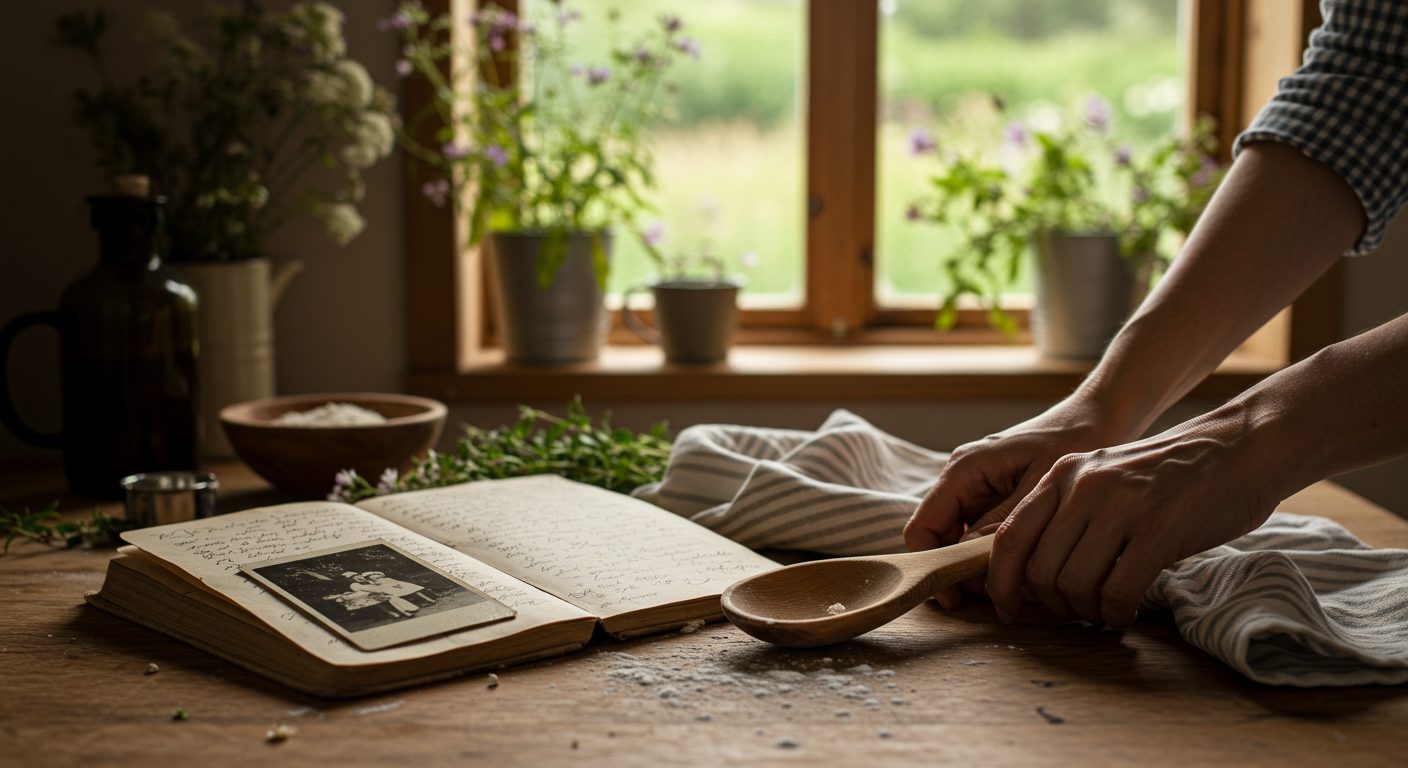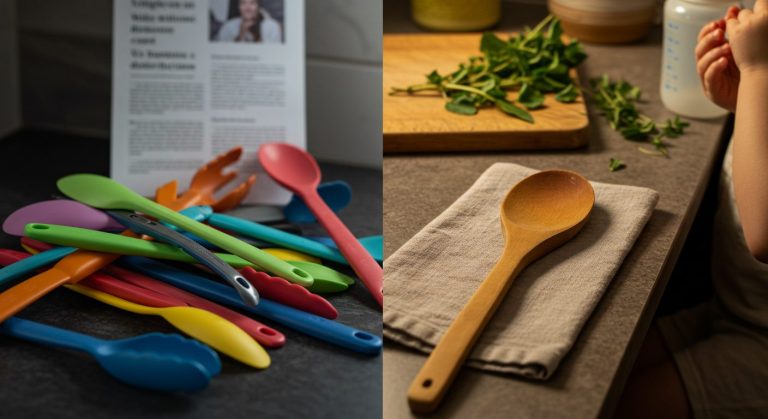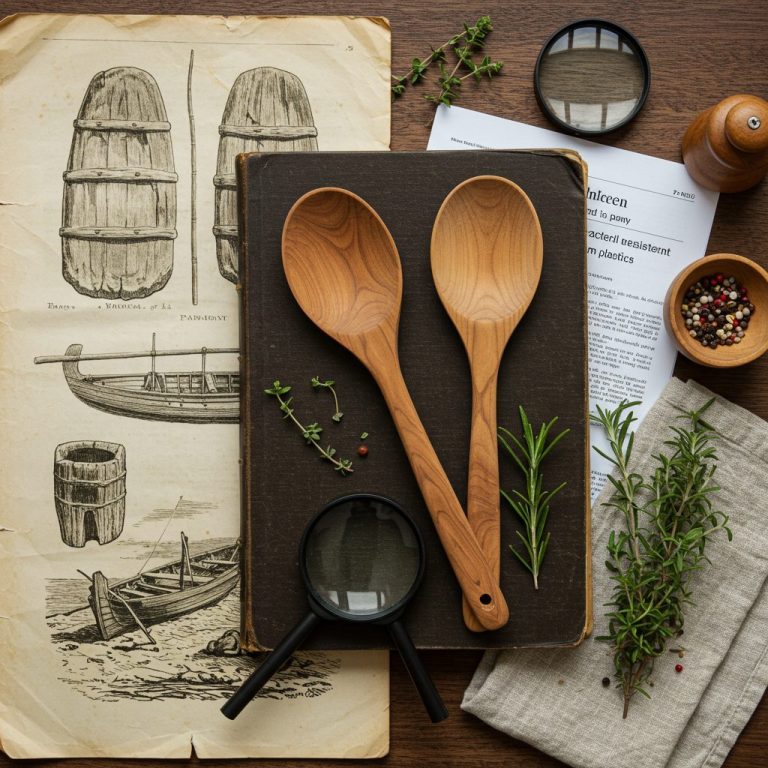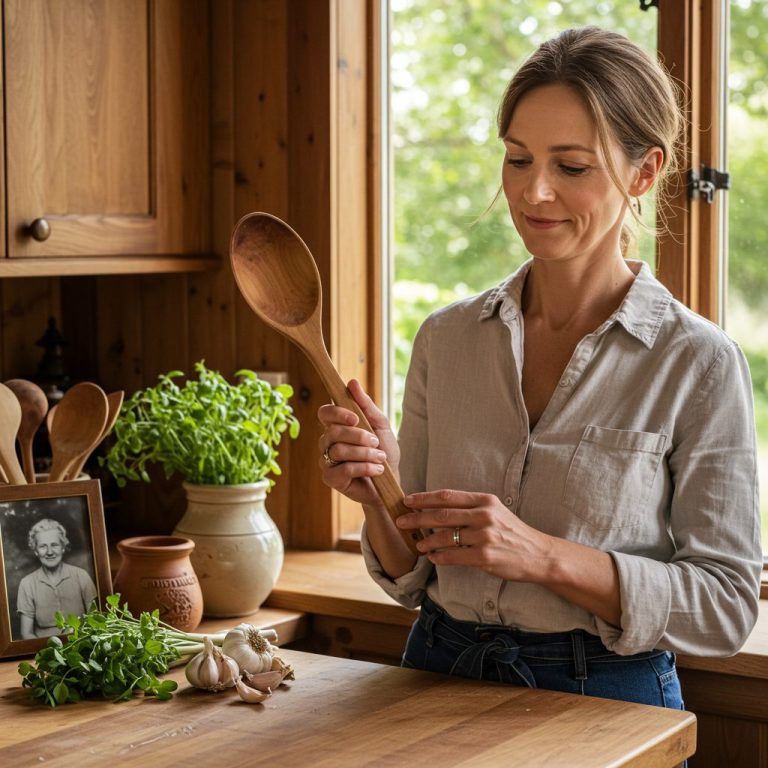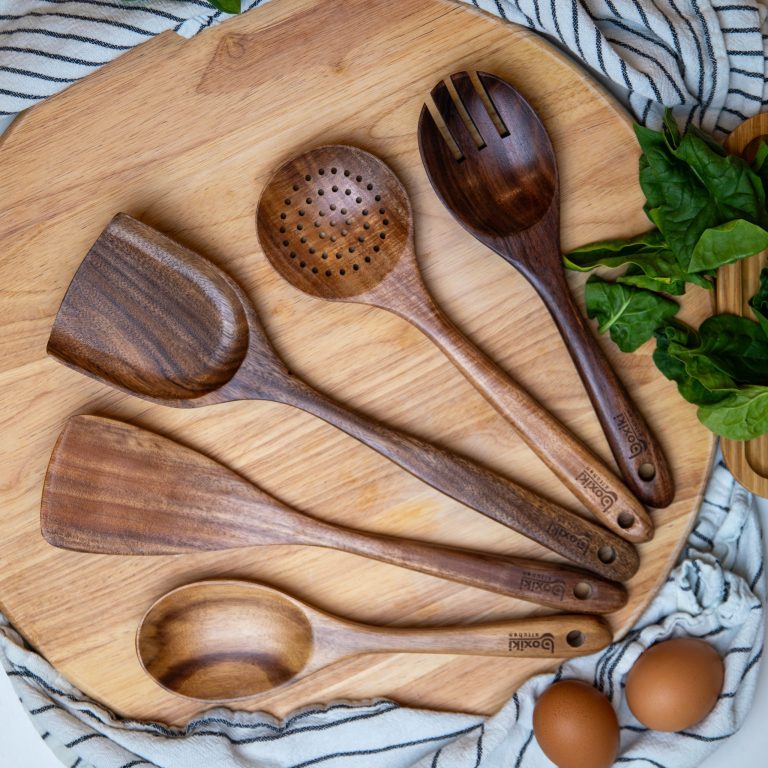🅶🅰🅻🆄🆅
ADVERTORIAL
The Simple Wooden Spoon That Changed How I Cook, And Why My Grandmother Was Right All Along
By Grace
I never expected a wooden spoon to make me cry.But there I was, standing barefoot in my kitchen, holding a smooth, hand-carved teak spatula — tears quietly falling as my daughter stirred soup beside me. It smelled like garlic and thyme and something older… something ancient. The warmth of the wood in my hand sparked a memory — not a specific one, but a feeling. I was back in my grandmother’s kitchen. The way she moved with grace, never rushing. The way her wooden spoons wore the stories of every Sunday roast and simmering stew. How she stirred with intention — not just to cook, but to nourish. That kitchen felt like home.And for the first time in years, mine did too.
I used to believe the best kitchen tools were the ones advertised as “modern” — silicone-tipped tongs, brightly colored plastic spoons, trendy nonstick pans. They were everywhere. I filled drawers with them. They were cheap, easy to replace, and honestly, they looked fun.But over time, I began noticing things. A funny taste when I used certain spatulas. Melted edges on spoons I swore were “heat safe.” My youngest developed eczema, and though we couldn’t pinpoint the cause, I started reading. And what I found shook me.
Plastics, even those labeled “BPA-free,” can leach chemicals into food — especially when heated. According to the National Institutes of Health (NIH, 2021), certain synthetic polymers used in kitchen tools have been linked to hormone disruption and long-term health concerns. Even so-called “safe” plastics aren’t immune, especially under high heat or prolonged use.I started wondering: When did we trade natural wisdom for convenience? And what had we lost in that trade?
In my search for safer alternatives, I stumbled across a beautifully carved teak ladle at a local artisan market. The vendor, an older woman with calloused hands and a soft smile, told me her family in Indonesia had used teak for generations — not just for cooking, but for boatbuilding. Teak, she explained, is naturally resistant to water, bacteria, and warping.
Curious, I dug deeper.
I learned that teak wood has been used for centuries in kitchens, temples, and ships, prized for its strength, resistance to decay, and rich golden grain. Archaeological finds have uncovered wooden utensils dating back thousands of years — long before plastics, before stainless steel. Our ancestors chose wood not just for availability, but because it worked
Modern science now supports what ancient cultures intuitively knew. A 2016 study published in PubMed Central found that certain hardwoods — teak included — have natural antibacterial properties that inhibit the growth of harmful microbes, even after repeated use. In contrast, plastic utensils can develop microscopic cuts that harbor bacteria and resist cleaning.
I had spent years scrubbing and replacing cheap tools, thinking I was doing the right thing. But maybe… the answers were simpler. Older. Wiser.
Swapping out my plastic and silicone for teak wasn’t just a kitchen upgrade. It was a quiet revolution in how I approach food, motherhood, and health.
Each time I cook now, I feel different
There’s a warmth in my utensils, both literal and emotional. They don’t clatter or scrape. They glide. They remind me to slow down, to savor, to be present. And when my children help me cook — which they love to do more now — I don’t worry about toxins or heat damage or leaching chemicals.
I feel peace. Because this isn’t just about spoons or spatulas. It’s about legacy. It’s about choosing tools that tell a story — not of mass production, but of craftsmanship, sustainability, and health
Why Teak Wood Just Makes Sense
Here’s what I’ve come to love most about switching to teak wood utensils:
- Naturally antibacterial — safer than plastic or silicone, even after repeated use
- Naturally antibacterial — safer than plastic or silicone, even after repeated use
- Non-reactive with food — doesn’t scratch nonstick pans or leach into meals
- Sustainable and biodegradable — good for your kitchen and the planet
- Sensory beauty — the grain, the feel, the soul of real wood in your hands
What the Science (and History) Say
- According to PubMed (2016), wooden utensils like teak can harbor fewer bacteria than plastic, especially when cleaned properly.
- The NIH (2021) has linked certain kitchen plastics to chemical leaching, particularly under high heat, raising concerns over long-term exposure.
- Teak has been used for centuries in boatbuilding and kitchens due to its natural oils that resist water, rot, and microbial growth.
- Archaeological records show wooden tools dating back to the Bronze Age, reflecting our ancestors’ preference for natural materials — not because they lacked options, but because they understood their value.
I used to think I didn’t have time to worry about “natural living.” That was for people who made their own almond milk and had herb gardens in mason jars. But now I see it differently. This isn’t about being perfect. It’s about being intentional. We cook for the people we love. We pour our time, our energy, and our hearts into those meals. Shouldn’t the tools we use be just as thoughtful? When I stir a pot with my teak spoon, I feel connected — to my grandmother, to the earth, to a lineage of women who cooked with care long before microwave dinners and plastic tongs. It’s not just cooking. It’s choosing a better way.
Ready to Come Home to the Kitchen?
If you’re like me — a mom trying her best to feed her family well, to live with more care, to find meaning in the everyday — I invite you to consider the tools you use.Not as a burden or a chore, but as a quiet revolution.A return.A remembrance.Explore the warmth of teak. Rediscover natural cooking. Feel what a toxin-free kitchen can be.
FAQs
- Are teak utensils safe for hot foods?
Yes — teak is highly heat-resistant. It won’t melt or release harmful compounds when exposed to high temperatures, making it perfect for hot soups, sauces, and stir-fries. - How do you care for teak wood utensils?
Wash them by hand with mild soap and warm water. Avoid soaking for long periods. Occasionally rubbing with food-safe oil (like coconut or mineral oil) keeps the wood nourished and beautiful. - Will they last?
Absolutely. With proper care, teak utensils can last for many years. Their natural oils resist moisture and cracking, unlike cheaper wooden or plastic alternatives. - Are they really better than plastic?
In many ways, yes. Teak is naturally antibacterial, doesn’t leach chemicals, and is environmentally sustainable. Plastics, even BPA-free ones, can degrade over time and release toxins, especially when exposed to heat.
Take the first step toward intentional, chemical-free cooking.
Feel the difference in your hands. Taste the difference at your table.Because sometimes the best way forward… is a return to what’s always worked.
🅶🅰🅻🆄🆅
Home / Privacy Policy / TERMS + CONDITIONS / COPYRIGHT @2025 GaLuv. ALL RIGHTS RESERVED
DISCLAIMER: THIS IS AN ADVERTISEMENT AND NOT AN ACTUAL NEWS ARTICLE, BLOG, OR CONSUMER REPORT. The content on this site and the story presented are for promotional purposes only. Any experiences or testimonials featured are illustrative and may not reflect the typical results you achieve with these products. This page may receive compensation for purchases made through links on this site. PRODUCT DISCLOSURE: These utensils are not intended to diagnose, treat, or improve any medical condition. They are designed for everyday kitchen use and enjoyment.
